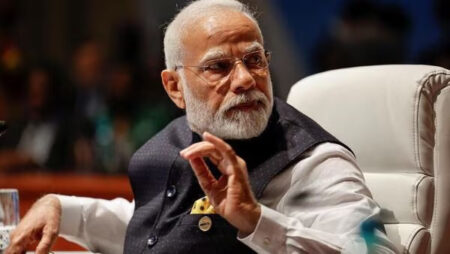Delhi High Court’s recent stance on acrimonious relationships between parents has shed light on the importance of preserving the bond between a mother and her child, even in situations of strained relationships. In recent years, family dynamics and the legal landscape surrounding them have been evolving, reflecting a more progressive and compassionate approach towards parental rights and child welfare. This article explores the Delhi High Court’s perspective, examines international precedents, and delves into Indian cases to establish the significance of re-establishing bonds between mothers and their children, irrespective of parental disputes.
The Delhi High Court’s Stance
Justice Navin Chawla overturned a family court’s decision that had denied custody of a 10-year-old child to the mother. He did so by stating that it is in the child’s best interest to receive love and affection from both parents, even if the parents are in conflict with each other.
In this case, the court criticized the Family Court for hastily dismissing the petitioner’s custody claim for the minor child without exploring avenues to mend the parent-child bond. It emphasized that the Family Court’s role extends beyond mere adjudication; it should also act as a facilitator to promote dispute resolution. The court highlighted that the Family Court should adopt a distinct approach from conventional civil proceedings, emphasizing the importance of fostering relationships and ensuring the child’s best interests are prioritized.
Justice Chawla took note of the fact that there were three FIRs lodged based on complaints from the mother against the husband and his family members, and another FIR was filed by the husband’s family against the wife and her family members. These FIRs contained substantial allegations against each other. However, Justice Chawla emphasized that even though the relationship between the parties had become highly contentious, leading to the registration of FIRs filled with serious accusations against one another, this should not serve as grounds for preventing attempts to reestablish a meaningful bond between the petitioner and the minor child.
Justice Chawla instructed the family court to prescribe specific methods and procedures for reestablishing a connection between the mother and the minor child. This would involve granting her visitation rights under the supervision of a counselor associated with the court. The court also noted that the Guardianship Petition is scheduled to be heard by the Family Court on September 16, 2024. It directed the respondent no. 1 to ensure the presence of the minor child on that date. Furthermore, the court advised the Family Court to consider the aforementioned observations while addressing the dispute.
The Delhi High Court’s pronouncement emphasizes that the acrimonious relationship between parents should not serve as grounds to deny a child the opportunity to re-establish a bond with their mother. This landmark judgment aligns with the principles of child welfare and the best interests of the child, which have been widely accepted internationally.
International Precedents
Numerous international jurisdictions have set compelling precedents emphasizing the importance of maintaining a mother-child bond, even amidst parental discord. In a noteworthy case in the United States, a court ruled that a mother’s right to maintain a relationship with her child should not be compromised solely due to a contentious divorce or custody battle. This decision underscored the child’s need for emotional stability and attachment to both parents, irrespective of their strained relationship.
Indian Perspective
India, too, has seen a shift in its legal landscape concerning parental rights and child welfare. Indian courts have increasingly recognized the importance of maintaining the mother-child bond, irrespective of parental discord. The Delhi High Court’s recent judgment is not an isolated incident but part of a broader trend.
In a case before the Bombay High Court, the court emphasized that it is the child’s right to have access to both parents, as long as it is in their best interest. This stance has been echoed by several other Indian courts, reaffirming the child’s need for emotional support and a nurturing environment from both parents.
ALSO READ: Dispute Should Correlate to Arbitration Agreement: Delhi HC Reiterates
While challenges may arise in cases involving domestic violence or other safety concerns, the overarching principle remains clear: the child’s emotional well-being and development should not be sacrificed due to parental disputes. Indian courts are increasingly recognizing this imperative, ushering in a more compassionate and child-centric approach to family law. In doing so, they pave the way for a brighter and more harmonious future for children growing up in challenging family environments.













